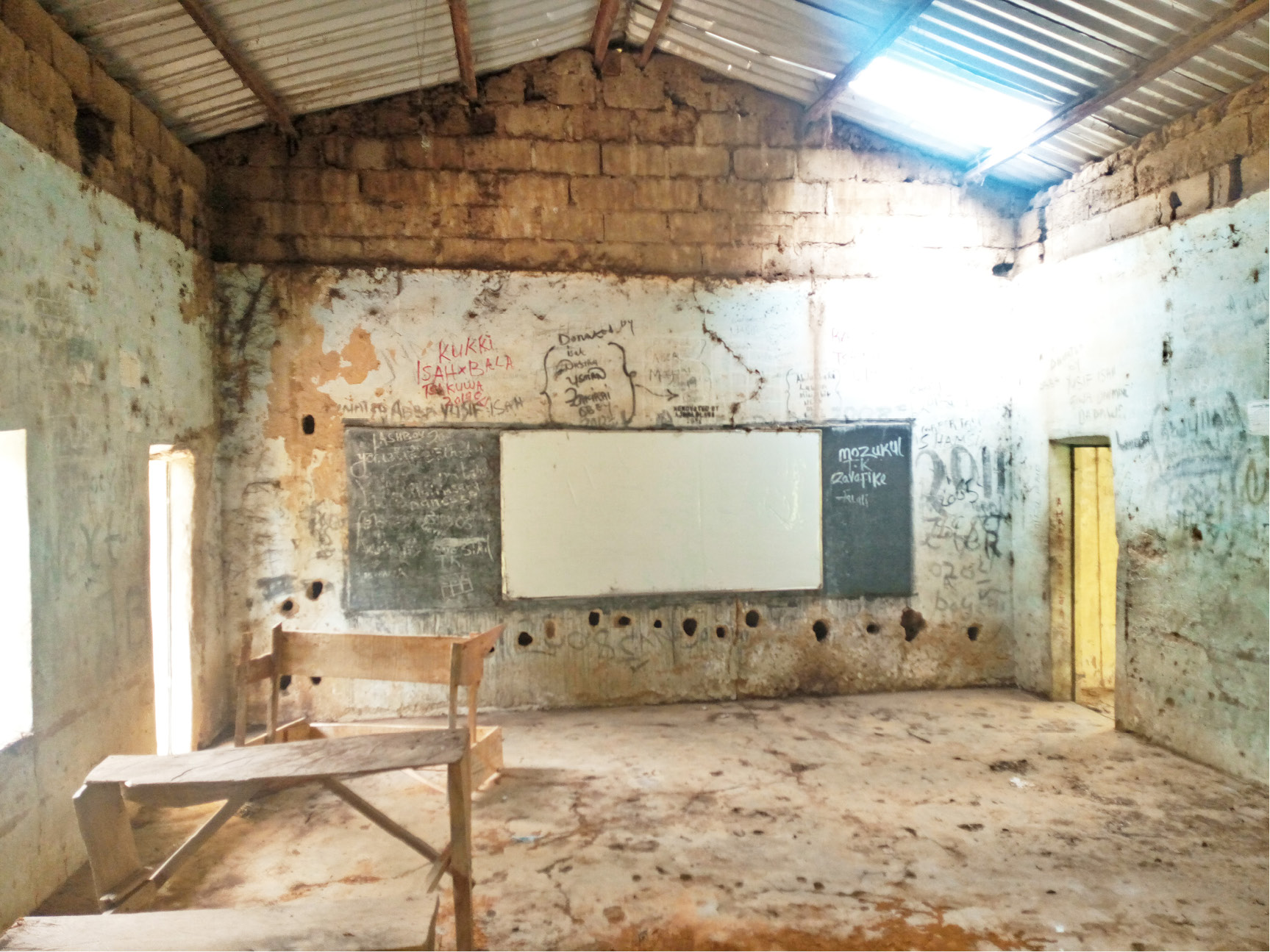Bare floors, bats, tell stories of Kano’s suffering schools
For communities in Ajingi Local Government Area of Kano State, the rot in the educational infrastructure in the area is greatly affecting teaching, and learning. Most of the schools in the ten wards of the council are now shadows of their former selves. The schools are rotting away fast, as structures have dilapidated, with doors […]

Inside one of the JS2 classes at GSS Ajingi
For communities in Ajingi Local Government Area of Kano State, the rot in the educational infrastructure in the area is greatly affecting teaching, and learning. Most of the schools in the ten wards of the council are now shadows of their former selves.
The schools are rotting away fast, as structures have dilapidated, with doors and windows all broken, and some even not there. Students’ tables and chairs are luxuries, with majority of the classes having none. Most of the classes have been taken over by bats, rodents, and reptiles. The school premises, with overgrown grass, are now grazing areas for wandering cattle.
A visit to Government Secondary School in Ajingi showed that the school, which was once a pride of the town, is in ruins, with most of the classrooms having been taken over by bats. Daily Trust Saturday also observed that there are virtually no toilets, as both students and teachers use neighbouring bushes to ease themselves. Despite being a school that hosts both day and boarding students, it lacks walls or any other sort of fencing, even as it is surrounded by farms, especially with the rainy season cultivation in full swing.

It is the same shocking story at Government Science Secondary School, in Gurduba Ward of the LGA, which is more of an empty warehouse than a school devoted to the sciences. The laboratory, for one, can only be identified by its stools, not by actual lab apparatus which are non-existent. Serving as a ‘science school’ in the morning, it moonlights as an Islamiyya for the community in the evenings. Both sessions of education see students sitting on bare, dusty floors.
Daily Trust Saturday spoke to some stakeholders in the town, and they said the absence of proper educational facilities in the area is a source of concern. “We’re all deeply troubled by the situation,” said Isa Abubakar, President of the Student Union in Ajingi, even as he added that efforts continue being made to reach concerned authorities to come to their aid.
Abubakar also revealed problems he described as “serious”, which plague their major schools, including Government Secondary School Ajingi, and those at Gurdaba, Balare, and others.
For over 10 years, the schools have been in dire conditions, Abubakar says. “We tried to meet with elders, and some well-to-do individuals from the town, but all that didn’t work out. We wanted to try and involve everyone, because the task is enormous. But so far, nothing has been done,” he said.
When school resumes, Abubakar says, students sweep the floors, and as soon as they are done, bat dung and other forms of dirt stain their white uniforms. “The strong smell of [bat dung] is all over the school, so much so that even the teachers don’t like it there,” he added.
“Students have begun to move to neighbouring towns to go to school, as ours is dilapidated,” Abubakar told Daily Trust Saturday, noting that many parents who want their children to go to school, are left in the cold. Even girl child education has been negatively impacted as a result of the condition of the school. “We even wrote to the state Ministry of Education, to let them know that we in Ajingi LGA are lagging behind, educationally. Even last week, some concerned students met and raised these issues at our local meeting.” But, as he notes with anguish in his voice, nothing has been done.

Daily Trust Saturday also spoke to Aminu Sa’adu, Chairman of Consolidated Ajingi Development Association (CADA), who said: “Twice in the past, we have visited the secondary school in Ajingi, snapped some pictures, and sent to the state Ministry of Education. We even visited the ministry eventually, where we presented our challenge to the Commissioner. But up till now, nothing has come out of that effort.”
Sa’adu said they later returned to the school, where they met with the principal, and the School-Based Management Committee, but “Up till now, nothing tangible has been achieved,” he sighed. “To be honest, the dilapidated structures are greatly affecting learning and teaching, thus dragging the ward back in terms of education. This very school – in the past – would get students from as far as Jos in Plateau State coming here, but these days, there is rather an exodus of people from here.”
The state Commissioner of Education, Mohammed Sanusi Kiru, told Daily Trust Saturday, that the government is to commence massive rehabilitation as already a technical committee to assess all dilapidated schools under chairman of SUBEB has been set-up. He also said: “Currently, they are going round taking stock of the rehabilitation to be done, and immediately after their work, they will then submit a report to the State Executive Council to either mobilise direct labour, or contractors for the works.”
Kiru also revealed that recently, N20million was mobilised to each local government for rehabilitation of primary schools in each respective area. “And that of secondary schools, too, is coming, including furniture. The committee is working day and night,” he said.
But Ajingi’s Student Union leader Abubakar stands his ground: “All we want is for the concerned authorities to come to our aid. This is one of the best ways to assist students, and education in general. And we do have brilliant students here, who really want to get quality education.”
